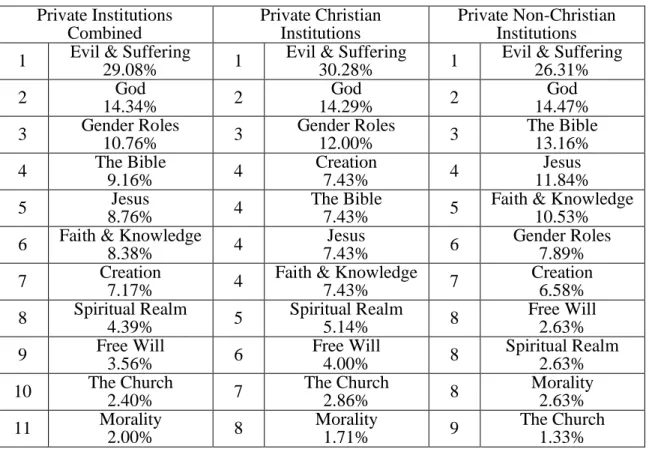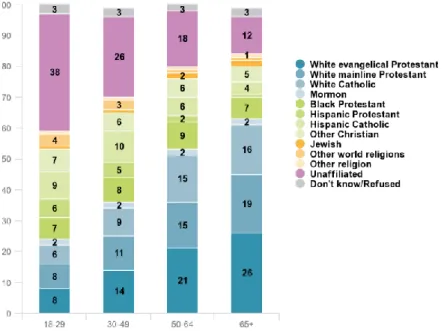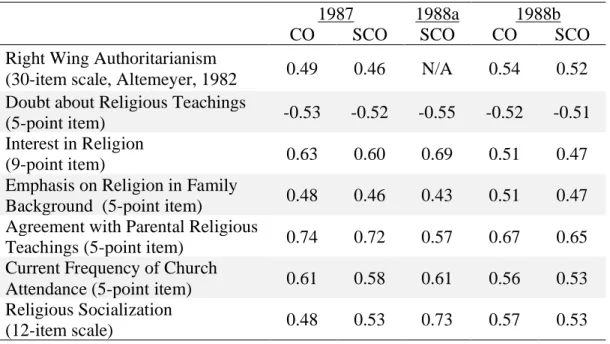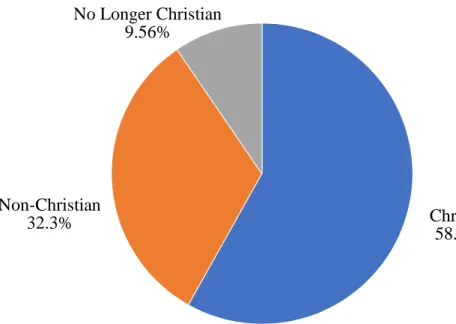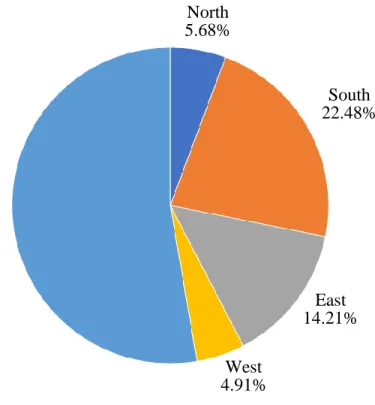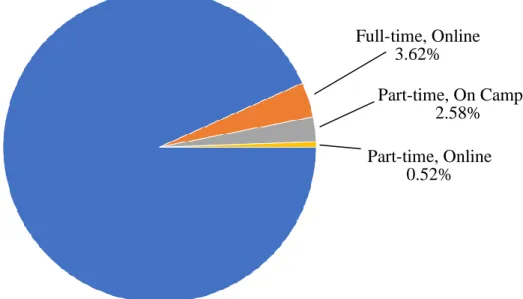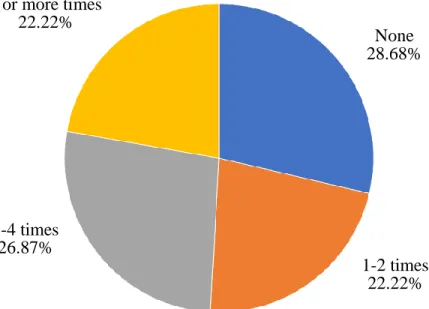To Alissa Michelle Adkins, my wife, and my love, who has dedicated her life to building a strong biblical foundation in the lives of our four children. I have read, studied, and used many of his published works on the subject of family ministry as the foundation from which I have formed my philosophy of family ministry. I would also like to thank my senior pastor, Rob Willey, for giving me the opportunity to pursue my dream of completing a doctorate.
Rob, thank you for allowing me to take the necessary time (sometimes overflowing with my church work) to complete this degree. Finally, I would like to thank my wife and our four children for allowing me to continue my studies. Landon, Reagan, Griffin and Rowen, I felt like quitting almost weekly, but you four kept me going.
Finally, I owe it all to Jesus Christ who saved me from death and ruin because of my sins. He is my Lord and Savior, whom I will follow all the days of my life.
RESEARCH CONCERN
Many teenagers live out their religion through their parents, which Christian Smith refers to as "parental religion".6 The problem is that the majority of teenagers tend to absorb traditional content and religious traditions through osmosis.7 In many cases, the doctrines of Trinity, holiness, sin, grace, justification, sanctification, church, Eucharist, heaven and hell are displaced by language about happiness, niceness and a deserved heavenly reward.8 In other words, there may be a connection between a weakening of trust. of core Christian doctrines among college students and an inadequate understanding of God, faith and Scripture. Zacharias says: “The Christian faith brings with it convictions that you can stand by and build a moral framework by. The short version of the Christian Orthodoxy (SCO) Scale was used as the research tool for this study.
Half of the items are negatively worded so that disagreement with the item is assessed in the orthodox belief system. 40 Bruce Hunsberger, “A Short Version of the Christian Orthodoxy Scale,” Journal for the Scientific Study of Religion 28, no. Scale.43 For the purposes of this study, core Christian doctrines include (1) the existence of God, (2) Jesus as divine, (3) Jesus' mission to save mankind, (4) Jesus' death and resurrection, and (5) the inspiration of the Bible.
Family Ministry is defined as: “The process of intentionally and persistently aligning the proclamations and practices of ministry so that parents are recognized, qualified, and accountable as the primary creators of students in their. Research assumes that answers to a quantitative survey survey accurately represent the respondents' belief experiences.
LITERATURE REVIEW
Of the 251 respondents from private schools, 23, or 9.16 percent, said this Christian belief was the hardest to believe or defend. Of the 251 respondents from private schools, 21, or 8.38 percent, said this Christian belief was the hardest to believe or defend. Of the 251 respondents from private schools, 18, or 7.17 percent, said this Christian belief was the most difficult to believe or defend.
Of the 251 respondents from private schools, 9 or 3.56 percent said this Christian belief was the hardest to believe or defend. Of the 251 respondents from private schools, 6 or 2.40 percent said this Christian belief was the hardest to believe or defend. Of the 251 respondents from private schools, 5 or 2 percent said this Christian belief was the hardest to believe or defend.
Of the 175 respondents from private Christian schools, 7 or 4 percent reported that this was the Christian faith that was most difficult to believe or defend. Of the 76 respondents from private non-Christian schools, 6 or 7.89 percent reported that this was the Christian faith that was most difficult to believe or defend. Of the 76 respondents from private non-Christian schools, 5, or 6.58 percent, reported that this was the most difficult Christian.
Of the 76 respondents from non-Christian private schools, 1, or 1.33 percent, reported that this was the most difficult Christian faith to believe in or defend. Of the 137 respondents from private schools, 13, or 9.49 percent, reported that this was the most difficult Christian belief to believe in or defend. Of the 137 respondents from private schools, 12, or 8.76 percent, reported that this was the most difficult Christian faith to believe in or defend.
Of the 137 private school respondents, 7, or 5.11 percent, reported that it was the most difficult Christian faith to believe or defend. Of the 137 private school respondents, 6, or 4.38 percent, reported that it was the most difficult Christian faith to believe or defend. Of the 137 private school respondents, 3, or 2.18 percent, reported that it was the most difficult Christian faith to believe or defend.
Of the 118 private school respondents, 9, or 7.63 percent, reported that it was the most difficult Christian faith to believe or defend. Of the 118 private school respondents, 6, or 5.08 percent, reported that it was the most difficult Christian faith to believe or defend. Of the 118 private school respondents, 5, or 4.24 percent, reported that it was the most difficult Christian faith to believe or defend.
Of the 118 private school respondents, 2, or 1.69 percent, reported that it was the most difficult Christian faith to believe or defend.
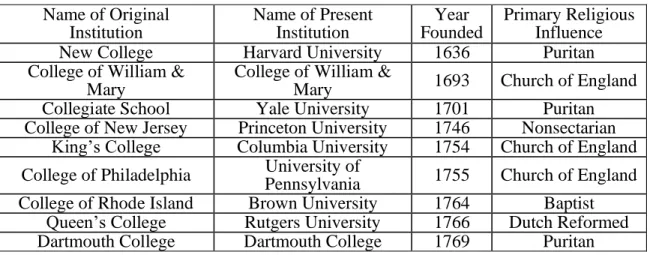
CONCLUSIONS
The geographic location of the private college and student enrollment status—full-time versus part-time—were not significant predictors of decreased confidence among private college students. This category was the highest predictor of factors associated with decreased belief in core Christian doctrines among students attending private colleges and universities. This is one of the reasons why there has been a non-significant difference in belief of core Christian doctrines among students attending private Christian universities.
There was not a significant change in personal Christian faith among students at Christian colleges and universities in any of the five major categories or the six faith-based questions. One of the purposes of this chapter is to reveal the connection between this research and the previous literature. 7 LifeWay Research reports that more than 65 percent of young adults stopped attending church between the ages of 18-22. 8 The results of this research support the statistics presented in the previous literature.
According to the research in this study, there could possibly be a correlation between the environment of the American university and the decrease of confidence in the core Christian doctrines among its students. One of the biggest possible differences found in the research stemmed from the difference between the decline in confidence in core Christian doctrines among students attending private Christian high schools compared to students attending private non-Christian high schools. There was a non-significant decrease (p>0.05) in confidence among students attending Christian colleges and universities in all six of the faith-based questions in this research.15 This non-significant decrease in Christian religious belief among.
This research added much to the precedent literature by focusing specifically on private students. Another area where this study has added to the precedent literature is in identifying specific issues of the Christian faith that students find difficult to believe or defend. This survey identified eleven areas of the Christian faith that private students feel less prepared to defend.
Barna says, “The role of the church is to equip and strengthen rather than lead [in child discipleship].”29 With this in mind, the church should be the best partner a parent will ever have. The researcher organized opportunities for further research into three categories – (1) Christian influence before college, (2) Christian influence during college, and (3) the influence of the church on the student. This section presents ideas for further research that focuses on the college student's home life before entering college.
Would the student agree or disagree that their diminished faith in core Christian doctrines was a direct result of the influence of their school? The purpose of this mixed-methods study was to identify areas in which students at private colleges or universities were least equipped to defend the core Christian teachings of the faith, to indicate areas where churches and parents could better work together to equip young adults with apologetic and foundational truths.
